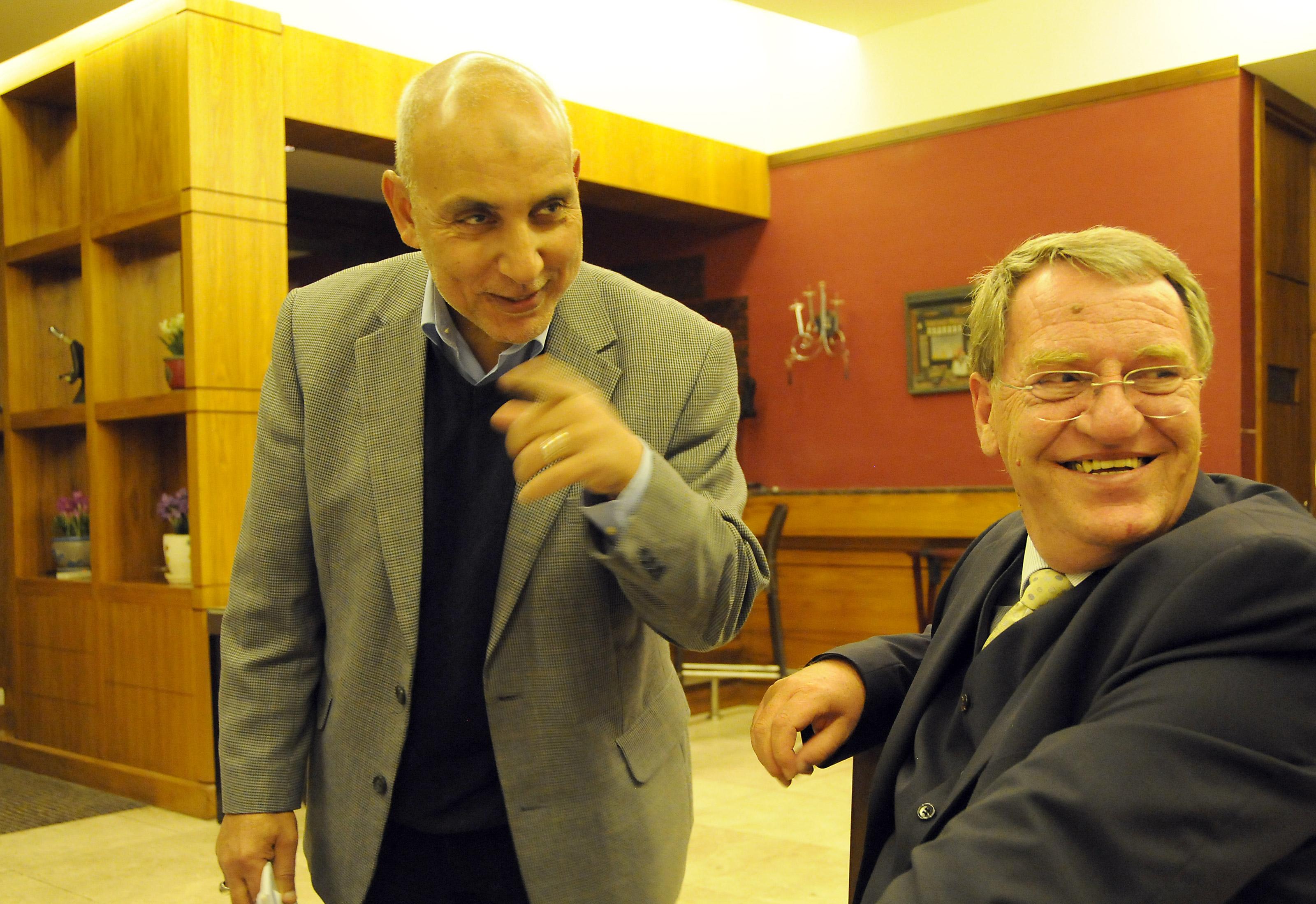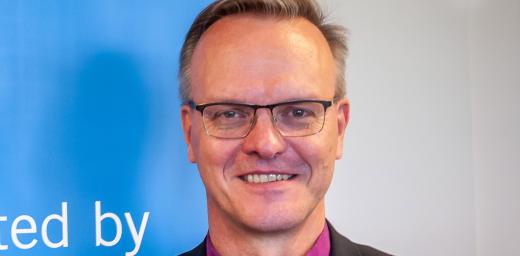People of Faith for People in Need

Rev. Eberhard Hitzler (right) and Dr Hany El Banna. Photo: LWF/M. Brown
Christian – Muslim Humanitarian Partnership Workshop Endorses Closer Cooperation
(LWI) – The Lutheran World Federation (LWF) has affirmed its commitment to closer collaboration with Muslim partners in humanitarian response, saying working together “is of mutual benefit especially to people affected by disasters.”
Endorsing a joint statement from the workshop Working Together: Christian-Muslim Humanitarian Partnerships, co-hosted jointly by the LWF Department for World Service (DWS) and The Humanitarian Forum in Amman, Jordan, 5 - 8 October 2013, DWS director Rev. Eberhard Hitzler emphasized the meeting had “confirmed that we all have much in common and want to work together with people affected by disaster.”
Hitzler added that the exploration for closer cooperation between the LWF and Muslim humanitarian agencies has been successful, and was in line with the United Nations High Commissioner for Refugees (UNHCR) “faith and protection” commitment.
In June this year, the LWF Council adopted a UNHCR-initiated declaration that calls on faith leaders, faith-based organizations and communities to strengthen efforts to welcome and support displaced and stateless people across the world, and to stand united against xenophobia.
The “Welcoming the Stranger: Affirmations for Faith Leaders” declaration was the culmination of a UN High Commissioner’s Dialogue on Faith and Protection convened in December 2012. The recent workshop in Amman was one of the follow-up initiatives, and it discussed operational issues around interfaith humanitarian partnerships. The 25 participants were drawn from UN agencies and from international Islamic and Christian non-governmental organizations.
“Partnership becomes a compelling duty on all of us, no one organization can work alone,” noted Dr Hany El Banna, President of The Humanitarian Forum. “We shouldn’t be afraid of building partnerships; fear is a mirage not a reality.”
In her presentation on the theoretical and theological framework for interfaith partnerships, Rev. Dr Simone Sinn from the LWF Department for Theology and Public Witness (DTPW) said the major motivation for interfaith collaboration in a humanitarian context was “to establish more effective humanitarian assistance as people of faith for people in need, and [to] empower them to fully exercise their rights and work towards justice and peace.”
Sinn added that such partnerships “help to counter animosity and mistrust between religious communities and create space and visibility for the constructive role of religion in humanitarian work.”
At the workshop, participants discussed follow up activities, which will include joint pilot projects in the respective areas of operation.
The full text of the Joint Statement from the Amman workshop | Welcoming the Stranger: Affirmations for Faith Leaders



